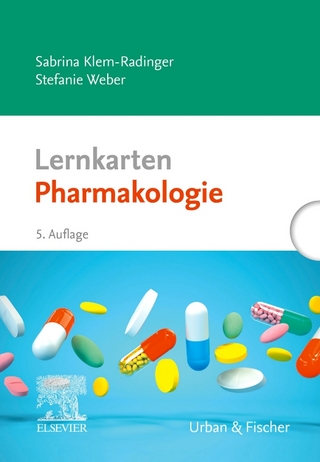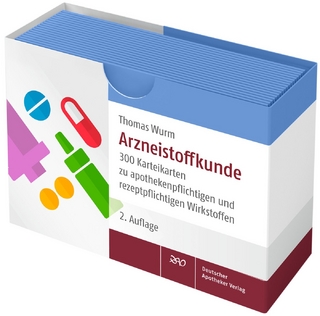Drug Discovery and Evaluation: Safety and Pharmacokinetic Assays
Springer Berlin
978-3-642-25239-6 (ISBN)
Safety aspects have become an outstanding issue in the process of drug discovery and development. Until 15 years ago safety aspects were addressed by pharmacological testing of the selected compound in high doses in tests directed at indications other than the intended indication of the new compound. These tests were followed by pharmacokinetic studies, which were mainly aimed at confirming of a suitable half-life time and at oral activity. Safety aspects relied mostly on toxicity studies, which however gave information on changes of organ structure rather than on organ function. Toxicological and pharmacokinetic studies were adapted to the progress of studies in clinical pharmacology and clinical trails. But the success rate in the pharmaceutical industry and the introduction of new chemical entities to the market per year dropped dramatically, whereas the development time for a new compound increased, sometimes exceeding the patent protection. A change of strategy was therefore adopted, involving the following changes:
- Parallel instead of sequential involvement of the various disciplines (multidimensional compound optimization).
- The term "Safety Pharmacology" was coined. The International Conference on Harmonization (ICH) founded a Safety Pharmacology Working Group. Easily accessible and the most informative tests now have to be selected.
- Exposure of a drug to the body by pharmacokinetic studies on absorption, distribution, metabolism and excretion has to be investigated at an early stage of development and can contribute to the selection of a compound for development.
Toxicology experienced major achievements by the introduction of new methods, e.g., in silico methods, toxicogenomics and toxicoproteomics.
The book is a landmark in the continuously changing world of drugs. As such it is important reading for many groups: not only for all students of pharmacology and toxicology but also for physicians, especially those involved in clinical trials of drugs, and for pharmacists who have to know the safety requirements of drugs.
The book is absolutely essential for scientists and managers in the pharmaceutical industry who are involved in drug finding, drug development and decision making in the development process.
In particular, the book will be of use for government institutions and committees working on official guidelines for drug evaluation worldwide.
Hans Gerhard Vogel (1927-2011) H. Gerhard Vogel studied Pharmacy and Medicine at the Universities Erlangen and Tübingen (Germany). He received his Licensure as a Pharmacist in 1952 and as a Physician in 1956. His Doctorate in Medicine was gained in 1955. In 1963 he was designated a Fachpharmakologe DPhG. In 1967 he became Associate Professor in Pharmacology and Toxicology of the Department of Medicine, University of Marburg. In 1970 he was acknowledged as a Specialist for Pharmacology (Arzt für Pharmakologie). From 1972 he taught students of Medicine, Pharmacy and Biology as an Honorary Professor in Pharmacology and Toxicology of the Faculty of Medicine, University of Marburg and from 1979 as an Honorary Professor in Pharmacology and Toxicology of the Faculty of Medicine, University of Frankfurt. After working as a resident in medicine in a city hospital, he joined the Department of Pharmacology of Farbwerke Hoechst AG, Frankfurt as a pharmacologist and endocrinologist in 1958. In 1969 he was made Director of the Department of Pharmacology at Hoechst, in 1977 Head of Pharma Research Experimental Medicine, in 1980 Head of Pharma Research, Preclinical Evaluation and Development, and in 1989 Head of the Decision Board on Pharmaceutical Development. His scientific work was devoted to elaboration of new pharmacological methods, pharmacology of plant extracts from various countries, pharmacology of steroid hormones, pharmacology of peptide hormones, pharmacology of cardiac glycosides, biomechanics and biochemistry of connective tissue, experimental gerontology, experimental dermatology, development procedures for pharmaceutical products. He published more than 160 papers, mainly on new pharmacological methods, endocrinology, especially peptide endocrinology, biomechanics and biochemistry of connective tissue, such as skin and bone, and on other topics. He was a member of many international and national scientific societies, such as The New York Academy of Science, American Association for the Advancement of Science, German Society of Experimental and Clinical Pharmacology and Toxicology, International Society for Bioengineering and the Skin, European Association for the Study of Diabetes, German Society of Endocrinology, German Society of Diabetology, German Society Connective Tissue Research, German-Chinese Society of Medicine. He was a co-editor and contributor to several scientific textbooks. In 1997 he published together with Wolfgang H. Vogel the book Drug Discovery and Evaluation. Pharmacological Assays (Springer-Verlag), which appeared in a second completely revised, updated and enlarged edition with many contributions by his colleagues in 2002. A third edition was published in 2008. Editorial Board: Franz Jakob Hock Franz Jakob Hock received his Ph.D. degree (Sc.D.) in Zoology at the Institute of Neuroethology and Biocybernetics at the University of Kassel, Germany. He joined the Department of Pharmacology of the pharmaceutical company Hoechst AG in 1976. He initially worked on methods in general pharmacology and nephrology, before becoming head of a laboratory devoted to pharmacological methods for drugs in_uencing memory and learning. He was then appointed Head of the Laboratory of General and Safety Pharmacology at the Frankfurt site of Aventis Pharma Deutschland GmbH. He received the degree of Fachpharmakologe DGPT ("certified expert pharmacology") in 1981. In 1983 he spent a sabbatical year at the University of California, Irvine, at the Center for the Neurobiology of Learning and Memory (Director Prof. Dr. James L. McGaugh). He lectured for several years to students in Biology at the University of Kassel and the Technical University Darmstadt. He has published over 100 original papers on methods in Pharmacology and on new compounds. He is currently a member of the Task Force General/Safety Pharmacology German/Swiss Pharmaceutical Companies. He served several times as a memb
From the contents:
General Introduction: Safety Pharmacology.- Safety Pharmacokinetics.- Safety Toxicology.
| Erscheint lt. Verlag | 27.2.2013 |
|---|---|
| Zusatzinfo | XXIV, 1404 p. 243 illus. In 2 volumes, not available separately. |
| Verlagsort | Berlin |
| Sprache | englisch |
| Maße | 192 x 260 mm |
| Gewicht | 3146 g |
| Themenwelt | Medizin / Pharmazie ► Medizinische Fachgebiete ► Pharmakologie / Pharmakotherapie |
| Medizin / Pharmazie ► Pharmazie | |
| Schlagworte | Bioanalytical Assays • clinical studies • Safety Assays • Safety Pharmacokinetics • Safety Pharmacology • Safety Toxicology |
| ISBN-10 | 3-642-25239-7 / 3642252397 |
| ISBN-13 | 978-3-642-25239-6 / 9783642252396 |
| Zustand | Neuware |
| Haben Sie eine Frage zum Produkt? |
aus dem Bereich




